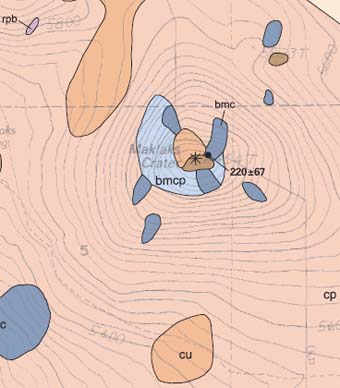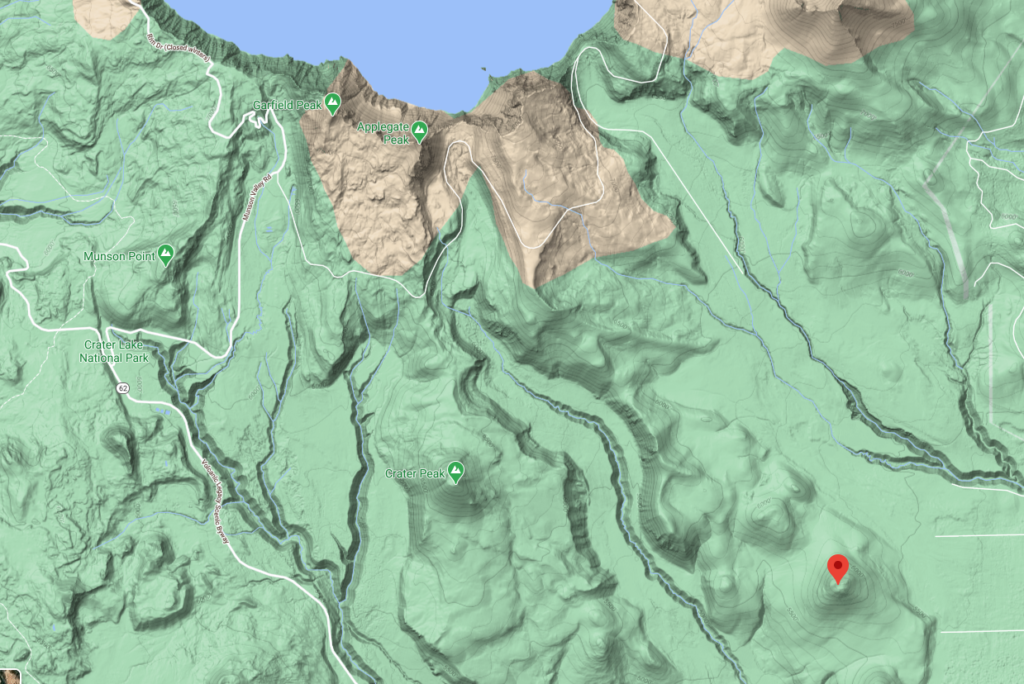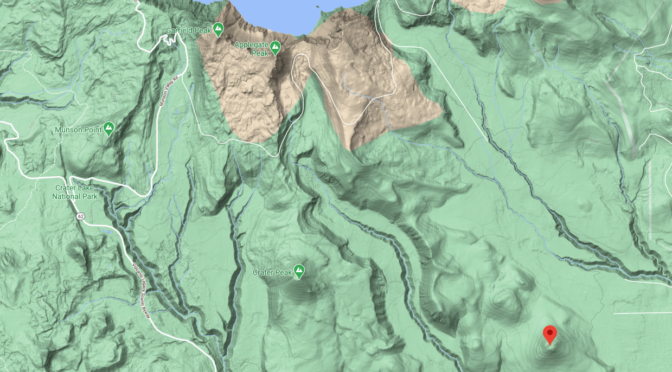Maklaks Crater (Diller Cone) – Prominent Geological Features of Crater Lake National Park

Except for the cone of Wizard Island, there is none in the park that surpasses in symmetry the one which rises from Grayback Ridge near its southern end. Maklaks Crater stands more than 600 feet high on a floor of drift-covered dacite. The northern slope is blanketed with pumice, but near the top and on the eastern side there are plentiful exposures of red scoria and agglutinate accompanied by a little scoriaceous lava. Apparently the last weak explosions served to fill the crater, leaving the summit almost flat. Close to the east base there are isolated outcrops of vesicular olivine basalt, but there is no means of telling whether this lava issued from fissures at the foot of the cone or belongs to the much older, Pliocene plateau basalt series which underlies Mount Mazama. [The Parasitic Cinder Cones of Mount Mazama, The Geology of Crater Lake National Park, Oregon (1942) by Howell Williams]

Other pages in this section
*** previous title *** --- *** next title ***


